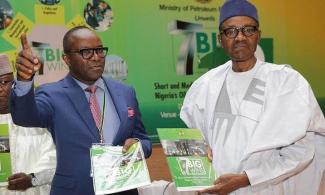
Kachikwu also spoke on the inability of the government's efforts to get rid of illegal refineries still in operation in various locations of the country.

Nigeria’s former Minister of Petroleum Resources, Ibe Kachikwu, has admitted the failure of President Buhari’s administration to give Nigerians refinery as promised in the run-up to the 2015 presidential election.
Kachikwu who was appointed in 2015, in an interview with Punch on Saturday said he was not ashamed to say and admit that he failed to deliver the mandate.
Discussing his achievements in the last four years, he said he believes that he has been able to stir the Petroleum industry in the right directions.
Citing examples like the passage of the Petroleum Industry Bill and he, however, expressed regret that the Petroleum Industry Governance Bill was not signed by the president.
The former minister of petroleum resources said although he was bold to say that he could not deliver on his five promises on refineries but the misunderstanding of how the system works could be blamed for the failure.
“If you look at the refineries, the first problem we had was that they were not functioning when I assumed office in 2015 and because of the huge apparent fuel scarcity; it was a major problem for me if I had to wait for vessels to arrive each time to meet the delivery timeline. These were the problems. So I was focused on how to get them working, at least to start, no matter how little and all they gave me was one million litres a day.
“The pipelines that were supplying fuel had all been destroyed and they had entered into a contract before we came in, to supply product by vessels. The cost of those vessels supplied was more than the value of the crude oil that was being supplied. It did not make any financial sense. So I cancelled that and challenged Nigerians who were in this entity to go and use their money to repair the pipelines.” he said.
Speaking on the issue of transparency in the oil sector and how the number of of crude oil being produced in a day is tracked, Kachikwu said the launching of the Department of Petroleum Resources database, DPR, has helped in the covering of the fields.
He said: “Metering is fine but once we capture this data, a level of metering is already going on and we are capturing that on a day-to-day basis. I can say we are producing 2.3 million barrels, using the DPR data. What I like to do, however, is to interrogate the data. We just launched it about two months ago. We are tracking you from when you produce to when you put it in the tank to when you deliver it and to when it is discharged. So in terms of transparency and what we produce, it is not an issue.”
Kachikwu also spoke on the inability of the government's efforts to get rid of illegal refineries still in operation in various locations of the country.
He said, “Metering is fine but once we capture this data, a level of metering is already going on and we are capturing that on a day-to-day basis.
"I can say we are producing 2.3 million barrels, using the DPR data. What I like to do, however, is to interrogate the data. We just launched it about two months ago. We are tracking you from when you produce to when you put it in the tank to when you deliver it and to when it is discharged. So in terms of transparency and what we produce, it is not an issue.”